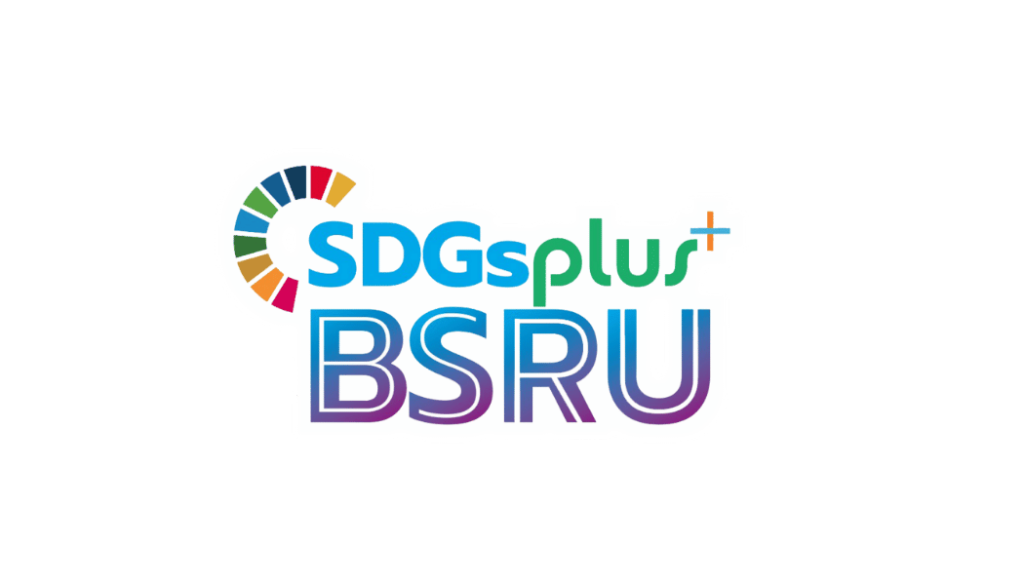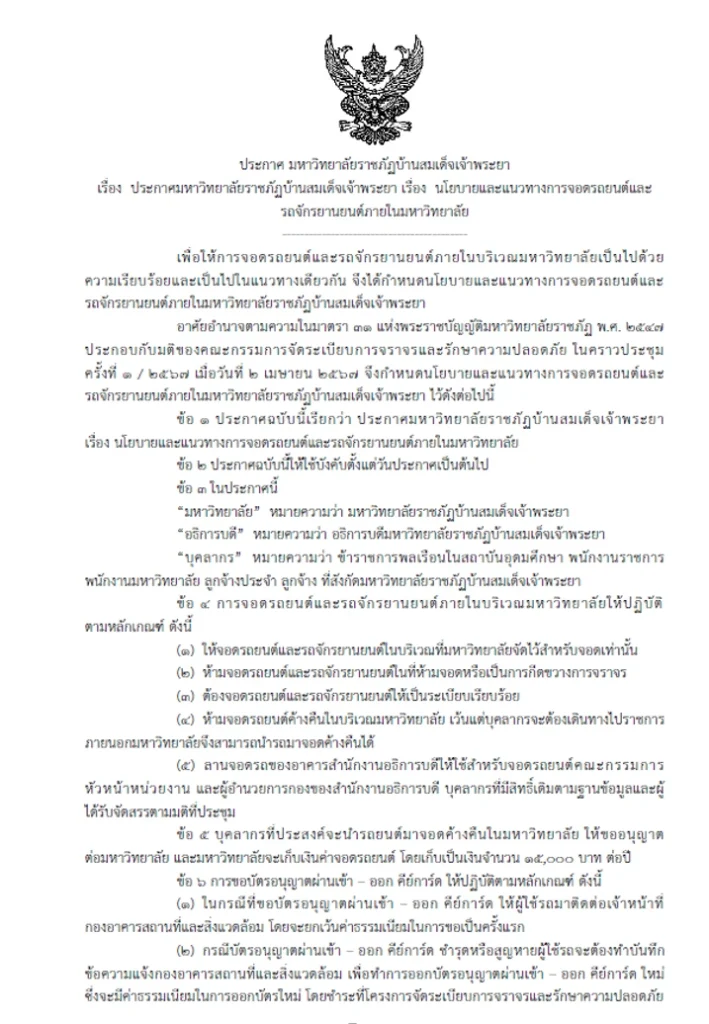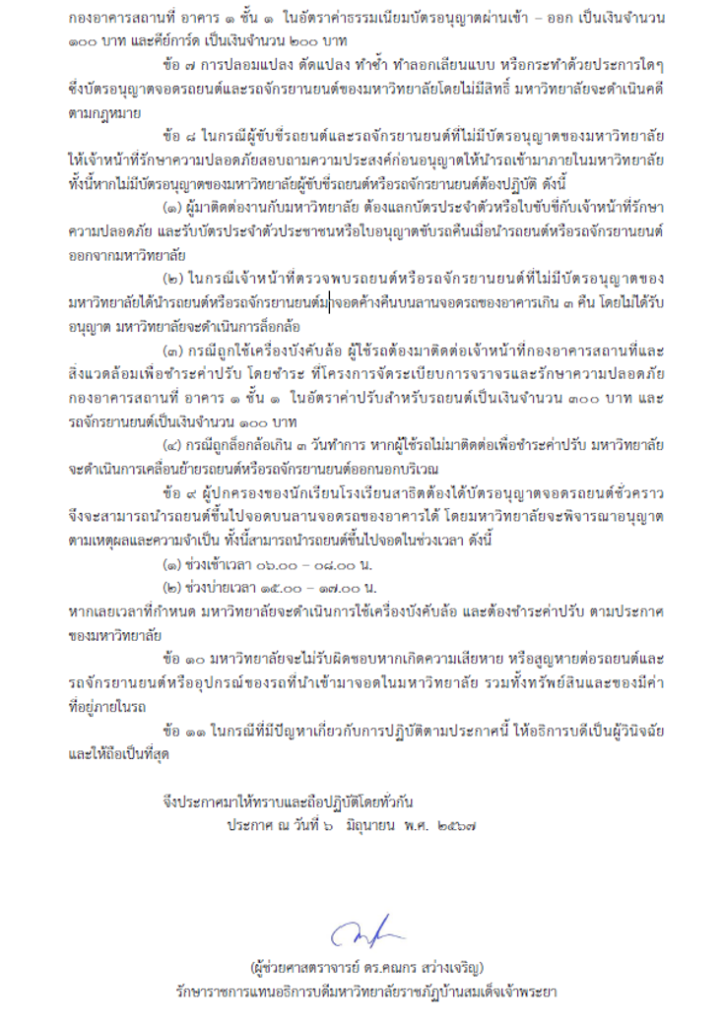1) Advancing Eco-Friendly Commuting at BSRU
As part of our dedication to SDG 11: Sustainable Cities and Communities, BSRU is implementing diverse, sustainable commuting practices to encourage eco-friendly transportation among our university community:
Electric Vehicles and Charging Stations
BSRU actively promotes the use of zero-emission vehicles as a key part of our sustainability strategy. We’ve installed an EV charging station on campus, supporting electric vehicle usage and facilitating a greener campus. Additionally, BSRU operates three electric vehicles to transport students and staff within campus, and we encourage bicycle use as an alternative, all of which significantly reduce our carbon footprint and model eco-friendly choices.
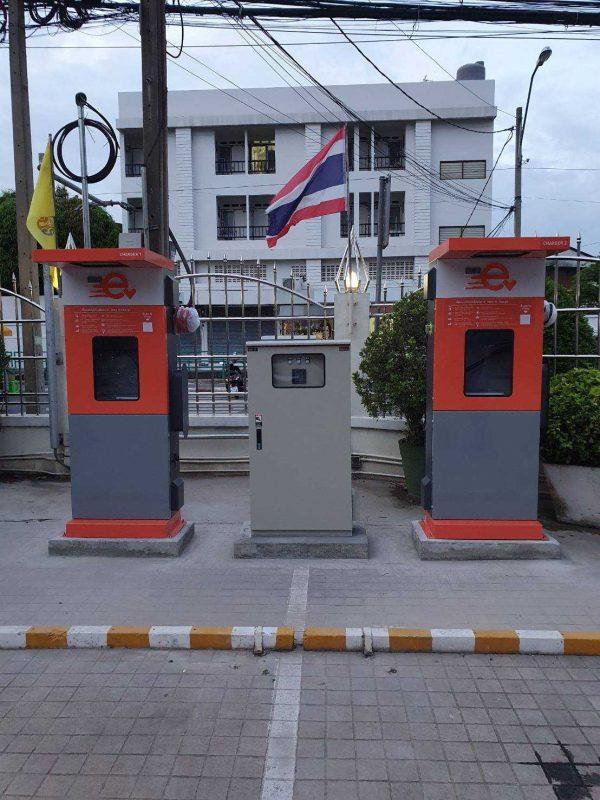
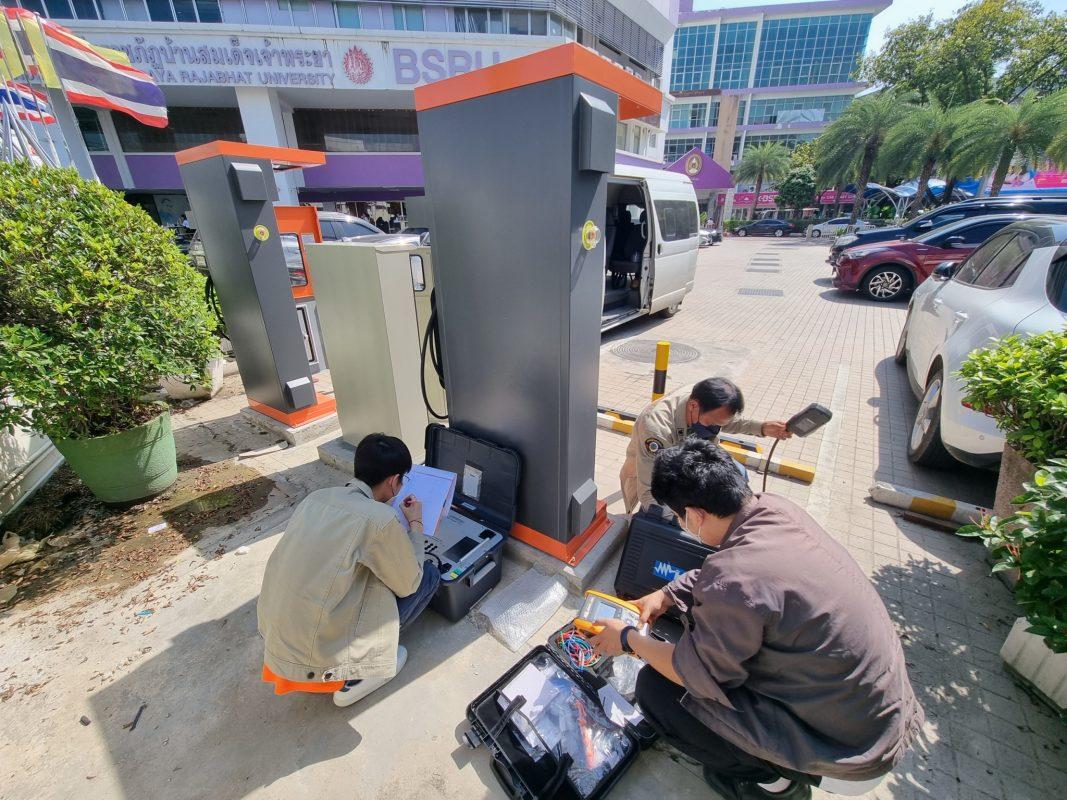
Shuttle Services for Enhanced Accessibility and Sustainability
The university operates three shuttle buses that facilitate travel within campus, especially aiding those with mobility challenges. Though our campus is compact, providing free and accessible shuttle services encourages students and staff to opt for public transport over personal vehicles. With a prime location just five minutes from Itsaraphap Metro Station and several local bus routes (Nos. 208, 4, 39, 40, 7ก, and 82), BSRU is well-connected to sustainable commuting options, further supporting eco-friendly transportation habits.
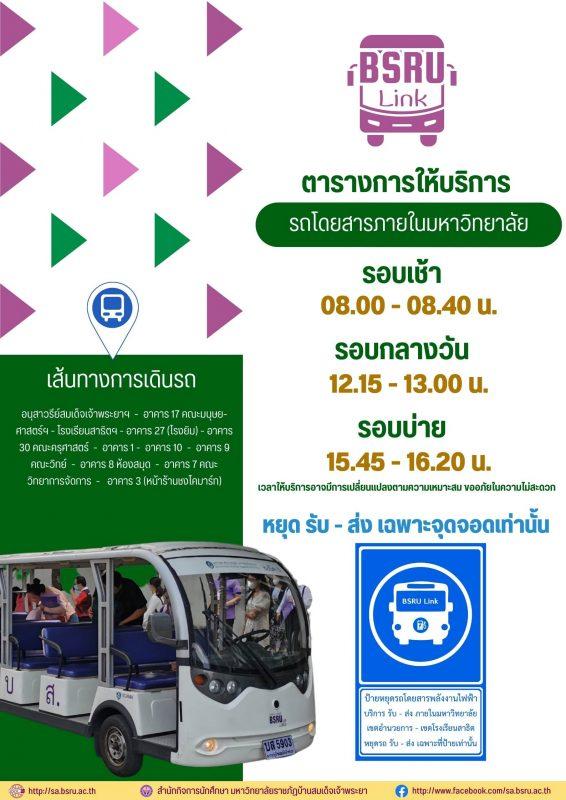
Promoting Carpooling and Public Transport during Events
BSRU emphasizes the use of carpooling and public transportation during major events (Sun sonic Concert) to reduce the number of private vehicles on campus. This initiative not only eases traffic congestion and reduces emissions but also encourages the adoption of sustainable commuting habits among attendees. BSRU’s model of sustainability for event planning helps minimize environmental impact and inspires similar practices in the broader community.

Encouraging Public Transport Use for the Royal Graduation Ceremony
For the Royal Graduation Ceremony, BSRU is encouraging attendees to use public bus transportation instead of personal vehicles to ease parking constraints and reduce environmental impact. This initiative addresses parking limitations, promotes sustainability, and exemplifies our commitment to creating a more efficient, eco-friendly campus environment.
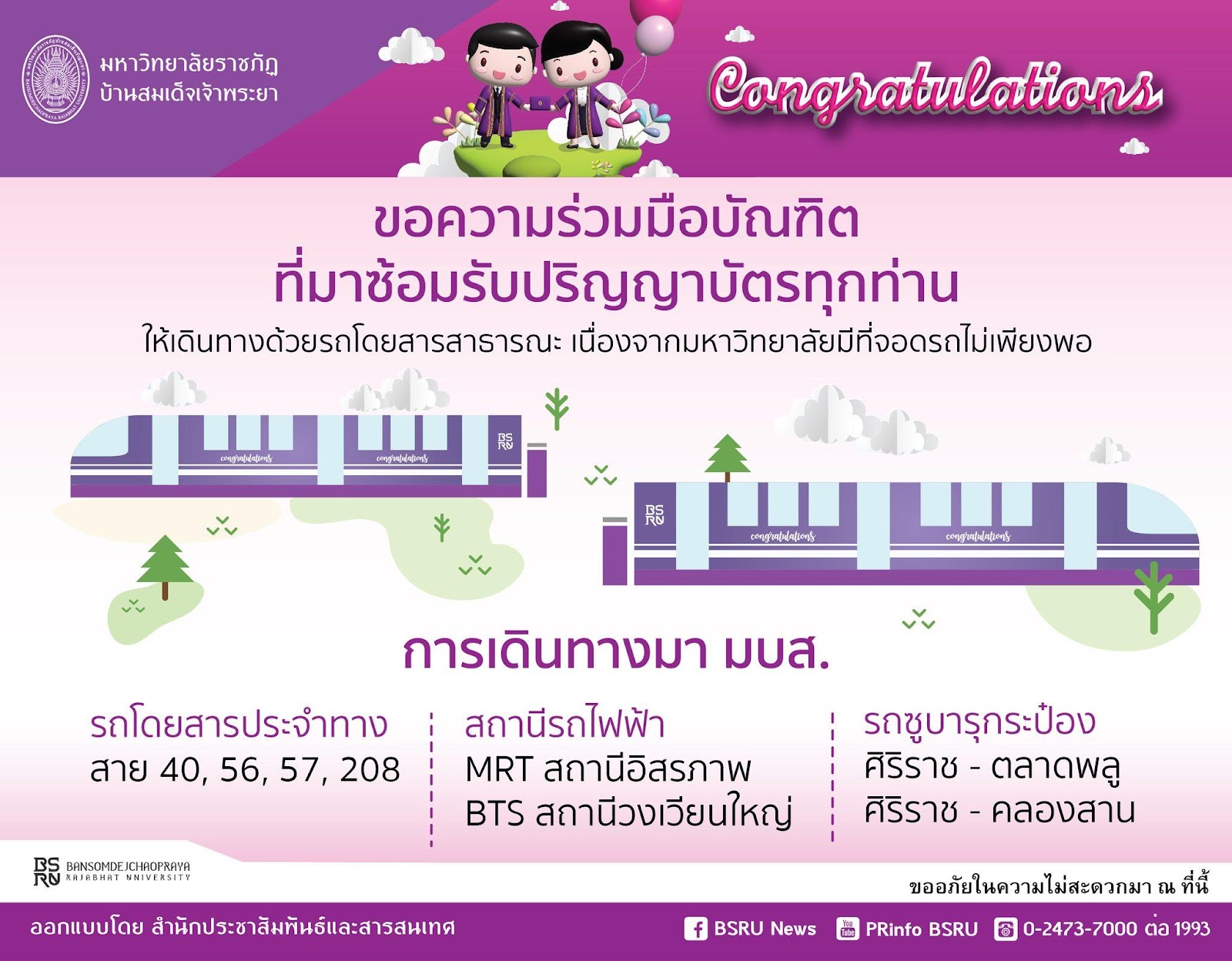
Through these sustainable commuting practices, BSRU continues to demonstrate leadership in fostering sustainable urban infrastructure and promoting a greener future for all.
2. BSRU’s Commitment to Sustainable Practices: Fostering a Sustainable and Eco-Friendly Campus
As part of our commitment to SDG 11: Sustainable Cities and Communities, BSRU has implemented a range of sustainable practices and transportation policies aimed at reducing our campus’s environmental impact and fostering a greener, more efficient commuting environment for our students, faculty, and staff.
Renewed Parking Policy for Reduced Congestion
To address campus parking congestion, BSRU has restructured its parking policy to minimize the use of private vehicles on campus. A large volume of faculty, staff, and visitors had previously contributed to overcrowding. The revised policy reserves parking exclusively for vehicles with university-issued entry and exit stickers, which restricts parking privileges to officially affiliated personnel. This new policy, introduced alongside controlled entry and exit points at various campus buildings, ensures that only those with approved permits can access parking facilities, optimizing space usage and reducing congestion. To discourage unauthorized overnight parking, staff are required to pay a 15,000-baht annual fee for extended parking. Similarly, students have designated time-limited parking options, while a separate building with free motorcycle parking encourages eco-friendly alternatives.
Measuring and Managing Carbon Emissions from Campus Vehicles
BSRU actively monitors the carbon footprint generated by cars and motorcycles on campus, aiming to progressively reduce it. Through a systematic calculation of total CO₂ emissions from vehicles, we analyze fuel consumption and carbon output as a way to track and manage environmental impact.
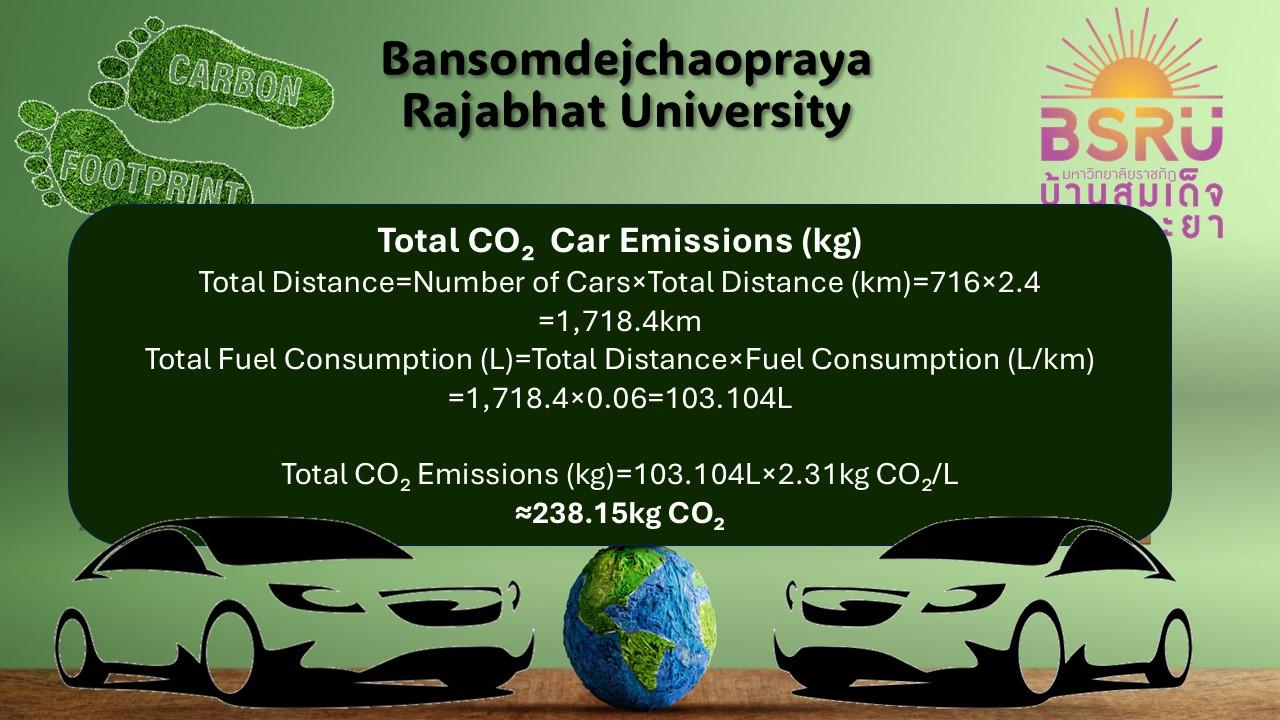
Car Emissions: Annual monitoring revealed that 716 cars on campus emit approximately 238.15 kg of CO₂, with fuel consumption calculated based on an average annual travel distance.
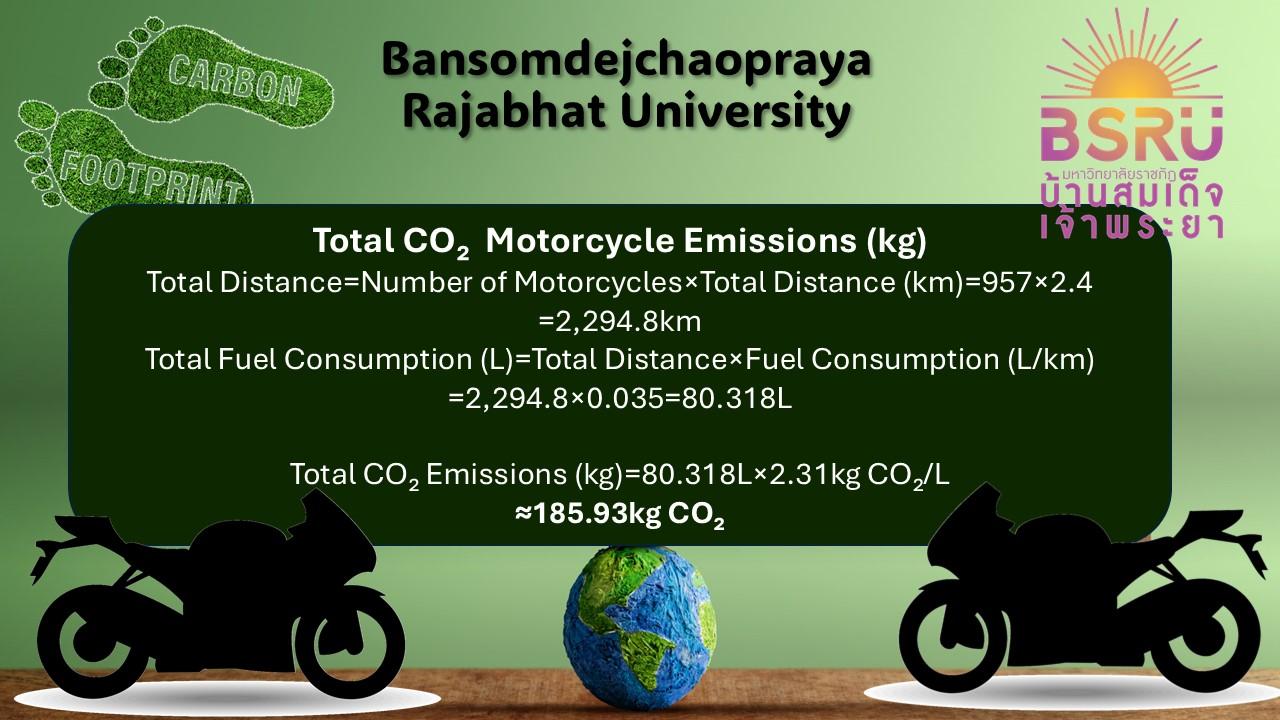
Motorcycle Emissions: Likewise, with 957 motorcycles commuting daily, CO₂ emissions are estimated at 185.93 kg annually, promoting awareness of these emissions and encouraging the use of alternative transportation.
Achievement in Green Initiatives with the Low Emission Support Scheme (LESS)
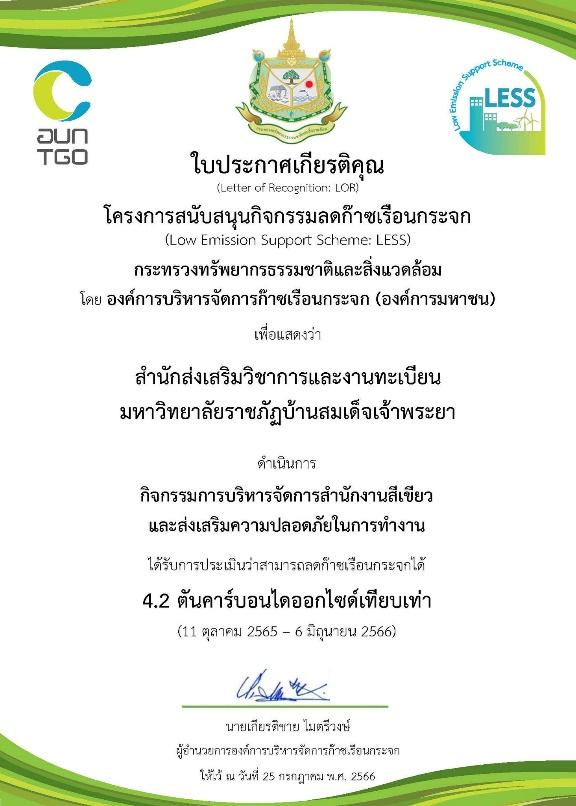
In recognition of our continued efforts toward sustainability, BSRU’s Academic Support and Registration Office received an award for green initiatives, highlighting our participation in the Low Emission Support Scheme (LESS). For the second consecutive year, BSRU has participated in this program, dedicated to reducing greenhouse gas emissions in alignment with environmental governance standards. During the latest reporting period (October 11, 2022 – June 6, 2023), BSRU successfully reduced its greenhouse gas emissions by 4.22 tons, underscoring our commitment to sustainable practices on campus.
These initiatives demonstrate BSRU’s active role in promoting sustainable commuting practices and reducing our environmental impact. By fostering a culture of eco-friendly transportation and efficient resource management, we continue to make strides toward creating a sustainable and environmentally conscious campus.
